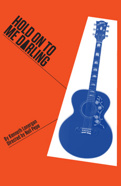Hold On to Me Darling Playwright Kenneth Lonergan on Being Inspired by Matthew Broderick's Mom & Why Writing Manuals Are Nonsense

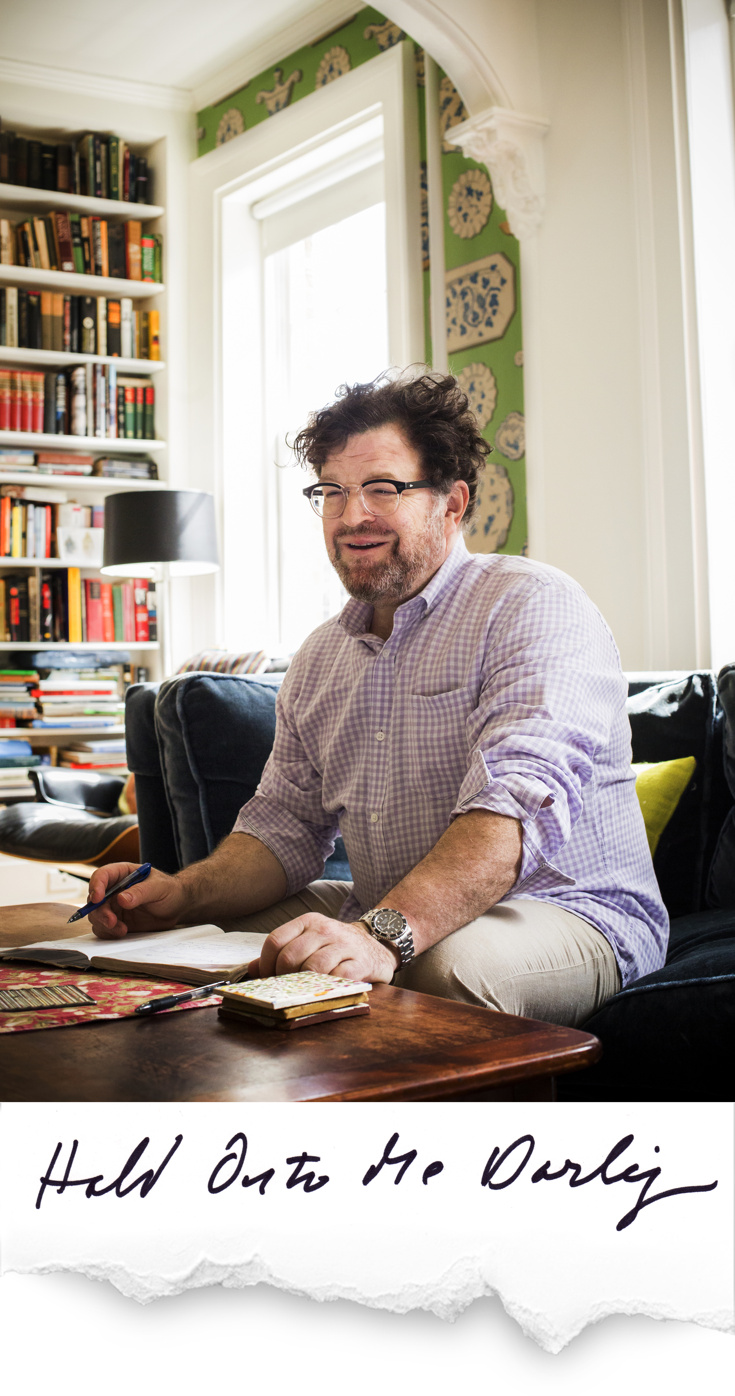
Kenneth Lonergan’s Hold On to Me Darling, starring Timothy Olyphant as a spiraling country superstar, is enjoying an extended engagement at the Atlantic Theatre Company. Lonergan had breakout success with his play This Is Our Youth in 1996 and went on to write The Waverly Gallery, which was a Pulitzer Prize finalist, as well as Lobby Hero, The Starry Messenger and Medieval Play. His first film, You Can Count On Me, which he wrote and directed, won many awards and was Oscar-nominated for Best Screenplay. His subsequent films include Margaret and Manchester by the Sea, which recently premiered at the Sundance Film Festival. He also co-wrote the screenplays for Analyze This and Gangs of New York. Lonergan welcomed Broadway.com into the gorgeous new apartment that he shares with his wife (actress J. Smith-Cameron), their daughter, a cat, a dog, a noisy refrigerator and loads of books, mementos and paintings—some still in boxes.
Do you have a writing routine?
When I'm working on something that's going well, I write whenever I can. But when I'm not working on something that's not going well, it's more in fits and starts and avoiding it.
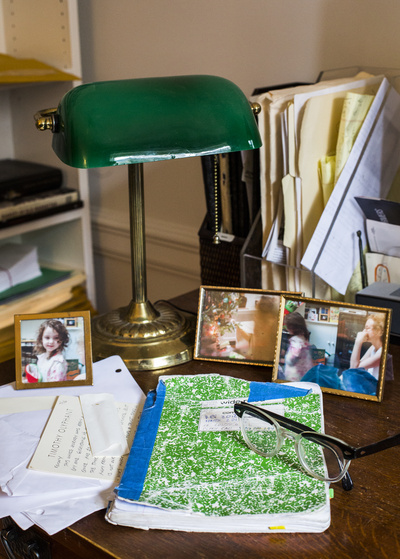
What inspired Hold On to Me Darling?
I don't remember. It was a long time ago that I wrote the first scene, and I wrote the rest of it over a long period of time. So I literally don't remember what it was. I like country and western music and just thought of that character and the scene in a hotel room; the rest evolved slowly over time.
Do you often go back to ideas from a while ago?
It’s like you have an idea or characters that you like, but you can't figure out how to make it into a whole piece that works. Then I might get stuck and not get unstuck for a few weeks or a couple years sometimes. I go on to work on other things that are going better, and when they’re finished, it would still be in my mind. Many things that I've finished have been written that way.
What plays changed your life?
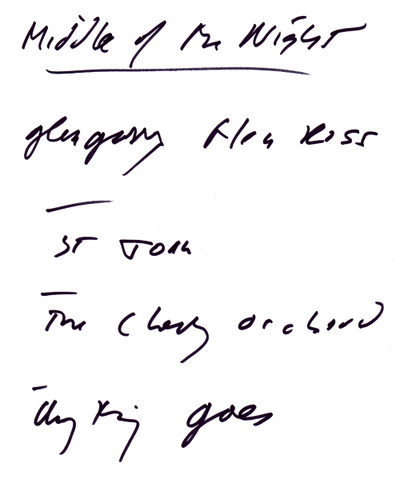
Did you listen to music while writing Hold On to Me Darling?
I listened to Loretta Lynn a lot. Also, Hank Williams, Tammy Wynette and Johnny Cash. I often listen to music when I'm working, though sometimes when I'm really doing well, I don’t like to have it because it's distracting.
When did you first think that you wanted to be a writer?
I’ve wanted to be a writer since fifth grade; I wrote a science fiction story that was four pages long.
What was it called?
It was called "The Voyage to Titan." It was about someone who flies a rocket to Titan, which is the largest moon of Saturn, of course. I had been previously interested in drawing before and I switched to writing in fifth grade, and then I wrote science fiction stories and novels until I was in ninth grade.

When did playwriting come into the picture?
My grandmother showed me a little advertisement for the Thacher School One-Act Play contest in Ojai, California, which is where the Bionic Woman is from. I wrote a one-act version—or rip-off—of Network, which I had seen and liked, and I won third prize and $100. That got me started in playwriting. Plus, it was easier to correct. Plays have much less material per page; I switched from sheer laziness.
What do you write in your notebooks?
Well, it's embarrassing. I seem to have a lot of notebooks, but this one was started in December of 2012 and it is now March of 2016. This one is particularly dilapidated. I have these going back to the ‘90s, but there are only about eight of them. I don't write down a lot of notes, but I'll write down an idea for something or a particularly interesting thought.
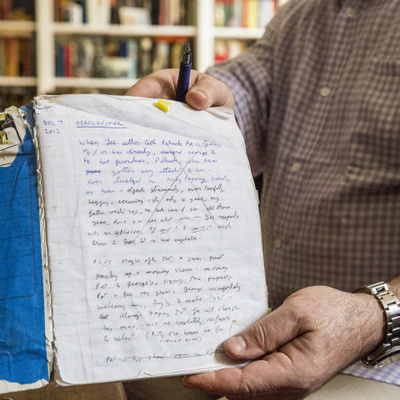
What drives you to write now that's different than when you were younger?
It’s like when you read a book that you're really excited about: That feeling when you constantly want to get back to your book. That happens less and less as I get older. All the things that crowd into your life when you're a genuine grownup tend to crowd out that floating imaginative feeling that's so pleasant and interesting to pursue. I’m trying to get back to that by clearing things away a bit so my mind can wonder more easily instead of worrying about unpacking boxes or walking the dog.
Which writers have inspired you?
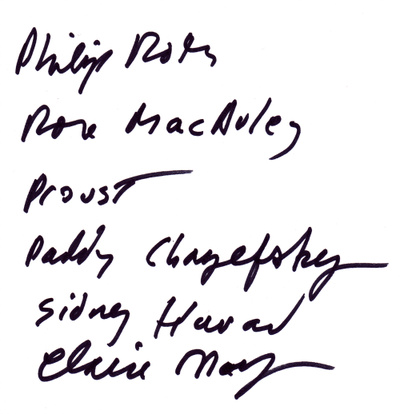
What’s the best advice you’ve ever received about writing?
Well, I can’t pin it down to one piece of advice, but the person who helped me the most was Patsy Broderick, who was my friend Matthew Broderick’s mom. She is the person most responsible for steering me towards writing for actors. I’m always very oriented toward acting, and I am always imagining what’s going on in the room between two people and following their behavior and trying to bring that out in the script.
What items do you like to have around you when you write?
I have sets of books that I’ve gathered about various subjects. I have pictures of Nellie and J., and I have my Australian owl that my grandmother gave to me. I’ve always had it on my desk, even in high school. I also have my little outer spacemen and a sign from my grandmother’s gallery.
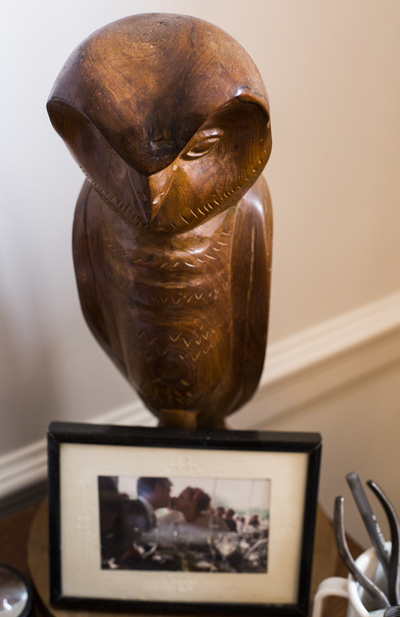
What is the nitty-gritty hard work of being a writer that no one told you?
Internally, it’s accessing the unconscious part of you that does all the best work. When you can’t get excited about anything that you’re working on, you have to find the first inroad to what switches on your imagination. Getting to that can be very difficult. Following that trail is the main basis of all the work that I try to do. The other part, which is external, is that you have to get used to everybody telling you their opinion about what you’re doing. You have to find a way to deflect that without being obnoxious because it’s impossible to function with that much input.
What’s something you think all aspiring playwrights should do?
I think it’s good to have acting training; understand what actors have to do. I usually give the same kind of advice to everybody, which is to not listen to too many comments. I also think all screenwriting manuals are nonsense. They’re descriptive and not functional. To get someone anxious that they have to have something happen by page 10 is foolish to me. It may be that every successful, good screenplay has something happen by page 10, but that doesn’t happen because it’s constructed that way. It happens because something is alive.
What's your favorite line in Hold On to Me Darling?

